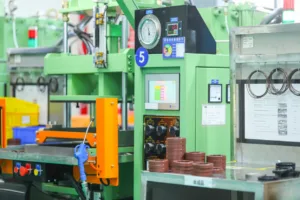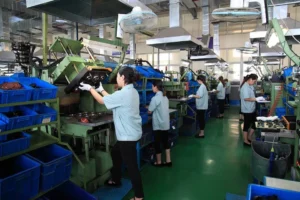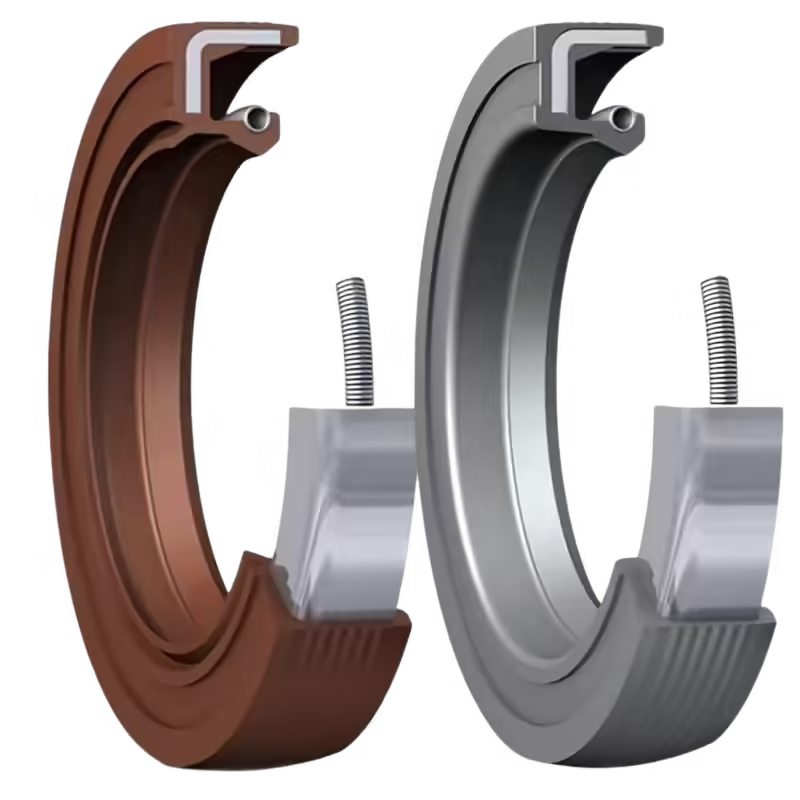8 Essential Steps to Buying High-Quality Oil Seals: A Comprehensive Guide
Introduction
Oil seals play a vital role in industrial machinery by preventing lubricant leaks and blocking contaminants from entering critical components. Whether you’re looking for high-quality industrial oil seals for machinery or aiming to improve your equipment’s performance, choosing the right oil seal is crucial. In this comprehensive guide, we’ll walk you through the 8 essential steps to buying high-quality oil seals. From understanding application requirements to selecting the right supplier, these steps will help you minimize downtime, reduce costs, and enhance overall operational efficiency.


1. Identify the Application Requirements
Before you buy oil seals, it’s essential to determine the unique needs of your machinery:
- Rotational Speed: High-speed applications demand low-friction, heat-resistant materials.
- Operating Temperature: Select a material that can withstand the intended temperature range.
- Pressure Conditions: How to choose the right oil seal for hydraulic systems depends heavily on high-pressure resistance.
- Lubricant Compatibility: Ensure the seal material is chemically compatible with your lubricant.
- Environmental Factors: Consider exposure to dust, moisture, chemicals, or extreme heat/cold.
A thorough understanding of these factors helps you select the right oil seal and ensures optimal performance.
2. Choose the Right Material for Durability
One of the best materials for heavy-duty oil seals is determined by your operational environment and fluid compatibility:
- Nitrile Rubber (NBR): Offers excellent resistance to oil and fuel; ideal for general applications.
- Fluorocarbon (FKM/Viton®): Provides high-temperature and chemical resistance; perfect for extreme conditions.
- Silicone Rubber (VMQ): Maintains flexibility in low-temperature settings; common in food and medical industries.
- Polytetrafluoroethylene (PTFE): Exceptional wear and chemical resistance; suitable for highly aggressive environments.
Selecting the correct material extends service life and helps avoid premature failures.Regarding material selection, DRO has conducted extensive research and experiments. For more details, please refer to https://drorubber.com/detailed-oil-seal-materials-analysis/.
3. Select the Appropriate Seal Type and Design
Different seal designs cater to varying operational demands:
- Single Lip Seals: Ideal for general sealing applications.
- Double Lip Seals: Added protection against contaminants and dust.
- Spring-Loaded Seals: Enhances sealing efficiency in high-pressure environments.
- Cassette Seals: Multi-lip structure perfect for heavy-duty machinery in construction and agriculture.
Choose a design that aligns with your machine’s speed, temperature, and pressure requirements for long-lasting performance.
4. Find a Reliable Supplier
Tips for buying oil seals from China or any global market often boil down to finding a trustworthy supplier:
- Online Research: Look for a reliable oil seal supplier in China or elsewhere with professional websites, ISO certifications, and positive reviews.
- Industry Platforms: Use platforms like Alibaba, Made-in-China, or ThomasNet. Look for verified manufacturers with diverse product ranges and good response times.
- Trade Shows & Factory Visits: Events like the Canton Fair or Hannover Messe allow you to examine products firsthand and establish strong relationships.
Pro Tip: Opt for suppliers who offer customization, technical support, and flexible payment terms.
5. Request and Evaluate Samples
Before placing a large order, always test samples:
- Material Consistency: Check rubber texture, elasticity, and resilience.
- Dimensional Accuracy: Measure inner/outer diameters and width for a precise fit.
- Sealing Performance: Conduct leakage tests or review the supplier’s testing reports.
- Packaging Quality: Proper packaging reflects attention to detail and quality commitment.
Manufacturers like drorubber.com can provide free or low-cost samples, ensuring they meet international standards before moving to mass production.
6. Negotiate Pricing and Order Terms
After sample approval, finalize the terms:
- Product Pricing: Reflects material quality and production complexity; bulk discounts may apply.
- Payment Terms: Commonly a 30% deposit, with the balance before shipment. Secure methods like letters of credit can add protection.
- Production Lead Time: Set clear deadlines and penalties for delays if necessary.
- MOQ (Minimum Order Quantity): Choose a supplier with MOQs aligned to your needs.
Clear, upfront communication ensures a smooth procurement and helps you build a lasting partnership.
7. Plan for Shipping and Customs Clearance
Tips for buying oil seals from China also involve efficient shipping and customs handling:
- Shipping Methods:
- Sea Freight: Cost-effective for bulk, longer transit times.
- Air Freight: Faster but more expensive.
- Courier Services (DHL, FedEx, UPS): Suitable for small or urgent orders.
- Important Documentation:
- Commercial Invoice: Needed for customs declarations.
- Packing List: Outlines shipment contents.
- Bill of Lading / Airway Bill: Proof of shipment.
Pro Tip: Work with an experienced freight forwarder for smooth customs clearance and to reduce unexpected costs. At drorubber.com, partnerships with trustworthy logistics providers are available for streamlined delivery.
8. Post-Purchase Inspection and Maintenance Tips
Upon receiving your high-quality industrial oil seals for machinery, perform these checks:
- Visual Inspection: Look for any cracks, deformities, or other flaws.
- Proper Storage: Keep seals in a cool, dry area away from direct sunlight.
- Correct Installation: Follow recommended guidelines to prevent damage during assembly.
Regular maintenance and inspection significantly extend the operational lifespan of your equipment.
Conclusion
Purchasing oil seals is more than a transaction—it’s a strategic decision impacting machine performance, operating efficiency, and overall costs. By following these 8 essential steps to buying high-quality oil seals, you’ll be better prepared to choose the right oil seal for hydraulic systems or other specialized applications. From initial research to final installation, a careful approach ensures optimal returns on your investment.
For custom sealing solutions, technical support, or guidance in choosing the best oil seal material, feel free to contact drorubber.com today!
- WhatsApp: +0086 15815831911
- WeChat: +0086 13784044874





